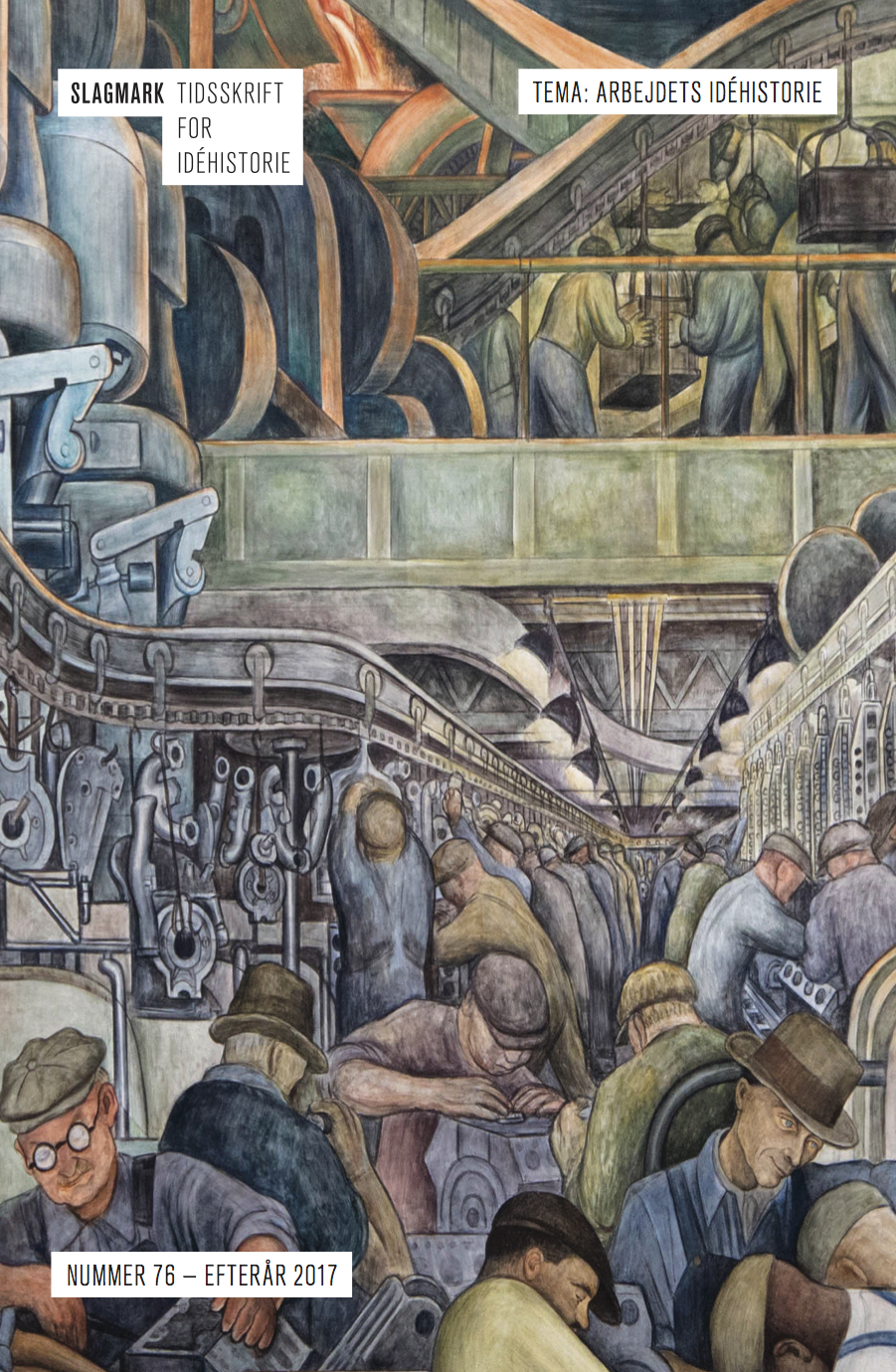Fra væsen til stoftskfite - Marx' arbejdsbegreber
DOI:
https://doi.org/10.7146/slagmark.v0i76.124161Nøgleord:
Labour, Work, Marx, Metabolism, HumanismResumé
FROM ESSENCE TO METABOLISM - MARX'S CONCEPTS OF WORK
The Marxist tradition is marked by a persistent conflict about the analytical as well as tactical use of the concept of labour: Is labour a trans-historical necessity, or is it rather a specific capitalist phenomenon that should be abolished along with capital and the state? The article shows how these theoretical and tactical conflicts can be traced back to certain ambiguities in the writings of Marx, taken as a whole. Furthermore, the article argues that Marx’s use of the concept can be divided into three periods: (I) In 1844, the concept of labour was a anthropological notion designating the trans-historical essence of the human being and occupying an explanatory and critical function in the critique of bourgeois society. (II) In 1845-48, the trans-historical use of the concept disappears and gives way to a distinction between activity and labour. The latter is now conceptualised as something specific to capitalism. (III) From 1857 onwards, Marx develops a new trans-historical concept of labour, inspired by the concept of metabolism. However, this concept does not have the explanatory and critical function that the early concept of labour had.
Downloads
Publiceret
Citation/Eksport
Nummer
Sektion
Licens
Ophavsretten til artiklerne i Slagmark deles mellem forfatter og Forlaget Slagmark.
Artikler og tekstmateriale publiceret i Slagmark må citeres, downloades og videresendes for ikke-kommerciel brug, under forudsætning af normal akademisk reference til forfatter(e) samt tidsskrift, årgang, nummer og sider.
Brug og distribution af tekstmateriale både i form af papirkopier og elektroniske kopier, til undervisningsbrug på uddannelsesinstitutioner og intern brug er tilladt efter aftale med Copydan Tekst & Node. Brugen skal ske inden for aftalens rammer.
Artikler og tekster må kun genudgives med eksplicit tilladelse fra forfatter(e) og tidsskriftet med en anerkendelse af værkets første publicering i nærværende tidsskrift.





